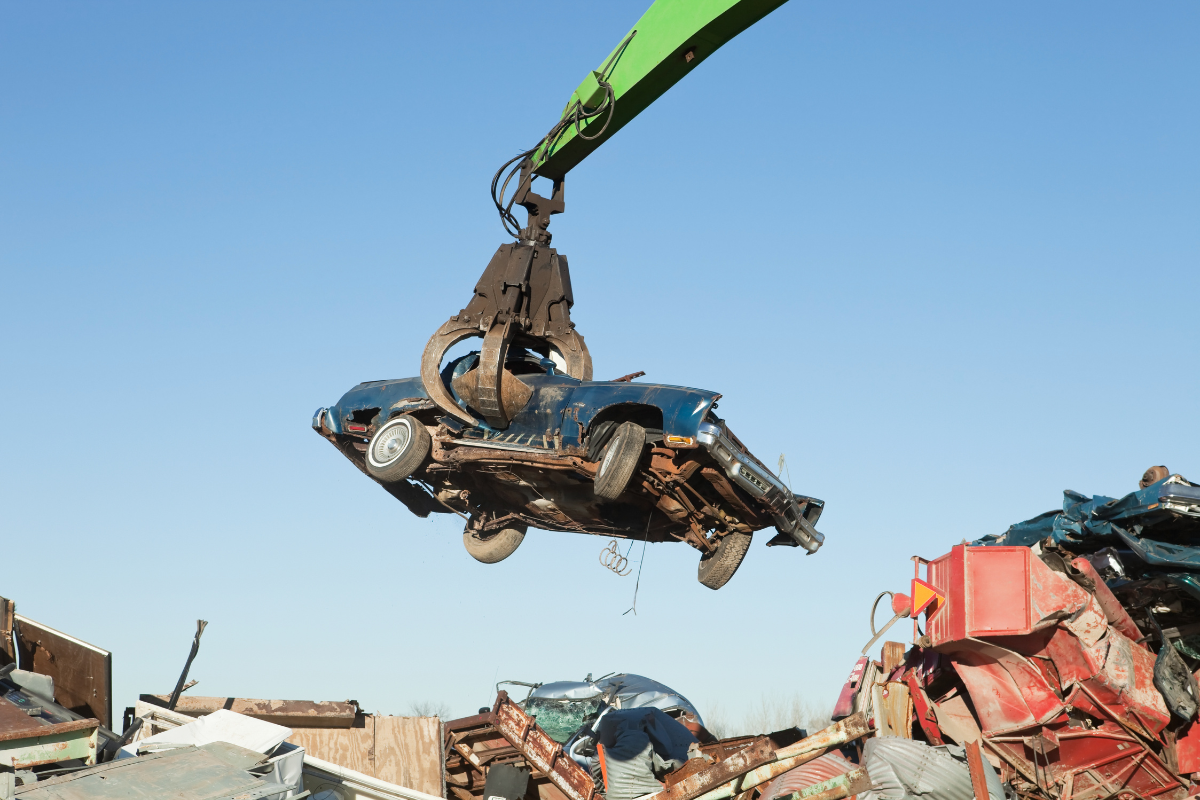
When a vehicle has been significantly damaged due to a collision, flood, fire, or other serious incidents, it may receive a salvage title. This designation varies by state but generally indicates that the cost of repairing the vehicle exceeds a certain percentage (often 75-90%) of its value. Salvage titles are meant to inform potential buyers that the vehicle has been severely damaged and may have lingering issues.
Vehicles with salvage titles can be purchased, but they cannot be legally driven on public roads until they have been repaired, inspected, and re-titled with a “rebuilt” or “reconstructed” title. Once repaired and inspected, the vehicle can be driven and sold like any other vehicle, but it will always carry the salvage history, which can significantly impact its resale value.
What is the Process of Getting a Rebuilt Title?
To obtain a rebuilt title for a salvage vehicle, several steps must typically be followed:
- Repair the Vehicle: The vehicle must be repaired to meet state safety and emissions standards. The repairs should bring the vehicle back to a roadworthy condition.
- Inspection: After repairs are completed, the vehicle must undergo a thorough inspection by an authorized inspector. The inspector will verify that the repairs were done properly and that the vehicle is safe to drive.
- Title Application: Once the vehicle passes inspection, the owner can apply for a rebuilt title. You’ll need to submit necessary paperwork o the state’s Department of Motor Vehicles. This includes the salvage title, repair receipts, and inspection certificate.
- Rebuilt Title Issuance: If the application is approved, the DMV will issue a rebuilt title for the vehicle. This title indicates that the vehicle was previously salvaged but has been repaired and inspected.
- Registration: With the rebuilt title in hand, the owner can register the vehicle and legally drive it on public roads.
What’s the difference between a branded title and a salvage title?
A branded title and a salvage title are both designations that indicate significant damage to a car. However, they differ in the specifics as to when they’re assigned and the implications for the vehicle’s value.
A branded title is issued by the DMV to indicate that a vehicle has experienced significant damage, such as from a collision, flood, or theft recovery, but the damage falls below the threshold for a salvage title. The specific types of damage that lead to a branded title vary by state. Examples of branded titles include:
- Rebuilt
- Flood-damaged
- Salvage history
While these vehicles have been repaired and deemed roadworthy, they may have a lower resale value and can be harder to insure.
A salvage title means a vehicle has sustained significant damage exceeding a certain percentage of its value. It also means that the vehicle is not roadworthy in its current condition. Before it can be legally driven, it must be rebuilt and pass a state inspection. Once rebuilt, the vehicle may receive a branded title or be reissued a regular title, depending on state laws and the extent of the repairs.
It is important to note that the information provided in this blog post is for illustrative purposes only and may not be applicable to all situations or jurisdictions. The specific definitions, thresholds, and requirements for branded and salvage titles can vary significantly from state to state. Dealers and individuals are advised to consult their state’s Department of Motor Vehicles (DMV) or relevant authorities for accurate and up-to-date information regarding vehicle titling and registration.
How do salvage titles work on an AFC dealer floorplan?
At AFC, we understand that salvage vehicles can be a valuable part of your inventory strategy. That’s why, in addition to our standard floorplan terms, we offer dealers the flexibility to floor salvage vehicles through our wholesale with salvage terms. In fact, a significant portion of our floored inventory falls under these specialized terms, giving you the freedom to explore this market segment.
We also recognize the unique needs of dealers who specialize in salvage vehicles. That’s why we offer two additional products tailored to this industry:
- Salvage Rebuilder: Designed for dealers who focus on rebuilding salvage vehicles to bring them back to roadworthy condition. This product offers extended terms and flexible financing options to support your rebuilding process.
- Dismantler: Ideal for dealers who primarily dismantle salvage vehicles for parts. This product provides specialized terms and inventory management tools to streamline your operations.
AFC – your trusted source for floorplan financing
Ready to drive your dealership’s success? Unlock the power of industry knowledge with AFC, your trusted partner in automotive finance. Learn more about floorplan financing solutions or take the next step and apply for floorplan financing today.
Disclaimer: Descriptions of AFC floorplans are for illustrative purposes only. Terms of AFC floorplan financing are subject to a final written agreement acceptable with AFC. AFC does not guarantee any results for floorplan financing and examples are for illustrative purposes only. Dealers should consult their own advisors to make independent business decisions regarding floorplan financing.
“AFC” refers to Automotive Finance Corporation, Automotive Finance Canada Inc., and AFC Cal, LLC in their respective jurisdictions. All California transactions are through AFC Cal, LLC. California loans will be made pursuant to Department of Business Oversight California Finance Lenders License. Canadian transactions are through Automotive Finance Canada Inc.’
